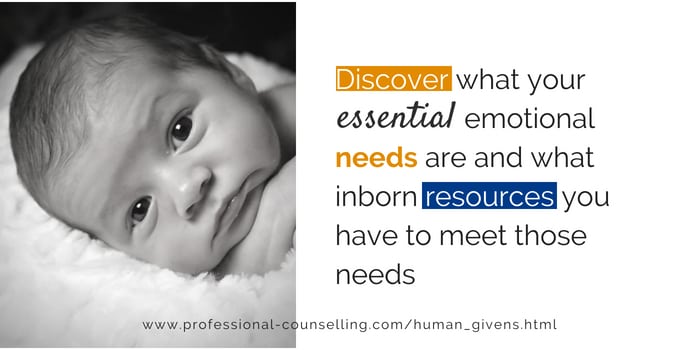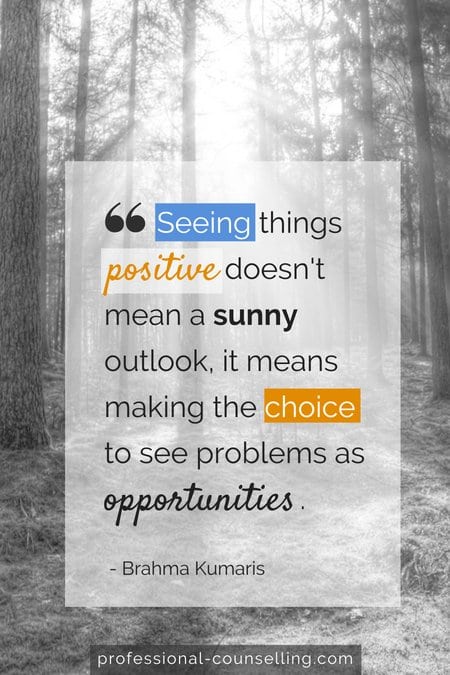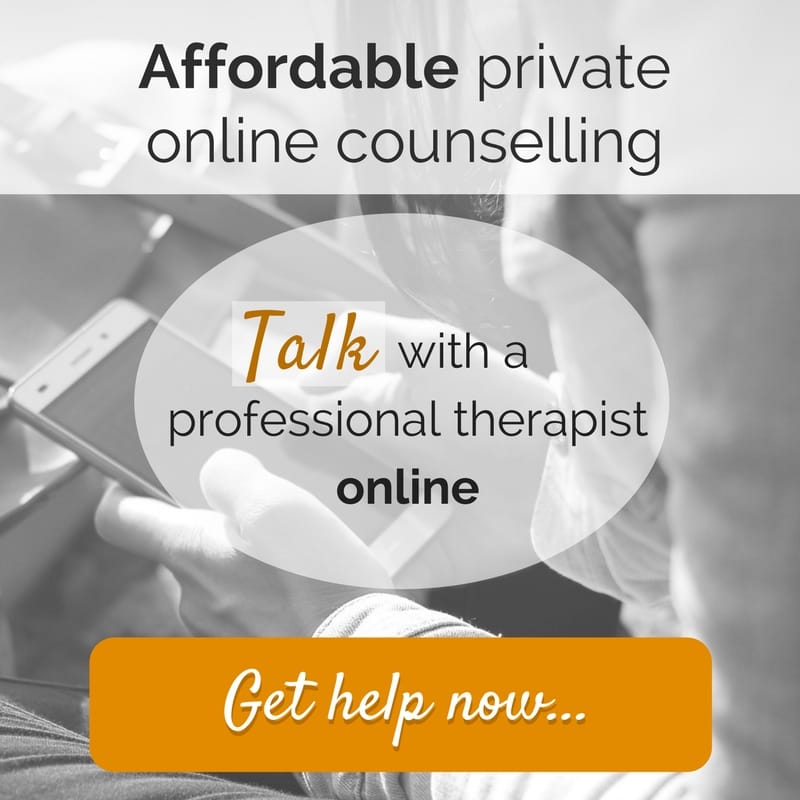Intimate Tickles Thought You Might Be Interested
Published: Sun, 12 Aug 2018 19:22:38 +0000
View Original Article
Category: Better Moods | Author: Elly Prior | First published: 23-09-2010 | Modified: 12-08-2018
What are the human givens?
The givens of human nature are your innate physical and emotional needs, as well as the resources nature gave you to help you meet these needs.
They are our genetic inheritance: templates downloaded from our genes into the brain of the foetus and later the neonate. These templates form into patterns, which continue to be adapted by the circumstances and the environments we find ourselves in.
 You are capable of much more than you think you are! You are born with incredible resources ready and waiting for you to take advantage of and develop.
You are capable of much more than you think you are! You are born with incredible resources ready and waiting for you to take advantage of and develop.Your essential emotional needs
I’ve listed below our essential emotional needs, all of which we should try to meet in balance:
- Security, which includes a stable home life and a safe environment in which to grow and fulfil our potential
- Giving and receiving attention
- Friendships, fun, love, and physical intimacy
- A sense of autonomy and control over our environment
- Being part of a wider community to create a sense of belonging and a feeling of being connected with others
- Meaning and purpose – more on that a little further down
Meaning makes a great many things endurable – perhaps everything.”
C.G Jung
- Self-esteem, which results from having our basic needs met and…
- …a sense of achievement which comes from stretching ourselves to achieve meaningful goals (no matter how small these might be)
- A sense of status within social groupings
Have a look at this fascinating animated video. Career analyst Dan Pink explains clearly the workplace benefits of ensuring that people are able to meet the basic emotional needs of autonomy, mastery and purpose….
The importance of meaning and purpose
To discover why meaning is so important, watch this fascinating video clip of holocaust survivor and psychiatrist Viktor Frankl…
Now, almost 40 years later, as human givens therapists we also strongly believe in the need for meaning, and in your capacity to fulfil your potential.
Our innate resources
We’ve been given all of the resources necessary to allow us to meet our most essential needs…
8 Of our most important inborn resources
- Curiosity: an innate desire to learn more
- Memory: the ability to develop long-term memory patterns for learning
- Imagination: to help us focus away from problems and towards creative solutions
- A dreaming brain: to metaphorically diffuse emotional arousal left over from the day
- The ability to understand the world and people unconsciously through metaphorical pattern matching
- An observing self: the part of us that can look in on ourselves and which is separate from intellect, emotions and conditioning
- The ability to build rapport, empathise and connect with others
- A conscious rational mind
Are your emotional needs being met?
Want to find out where you stand with regards to meeting your essential emotional needs?
A great way forward! You’ll be able to direct all your energy into making sure that you’re feeling your best.
Sign up for my newsletter to find out more.
What happens when things go awry?
You’re at risk of becoming unwell and unhappy when your needs are not being met in balance or when you misuse your resources.
For example, you might use your imagination to constantly worry, rather than for solving problems.
 Easily said, isn’t it, when you’re struck by a left-hooker. But, what choice do you really have?
Easily said, isn’t it, when you’re struck by a left-hooker. But, what choice do you really have?What can be done about that?
A human givens therapist is trained to identify imbalances in your emotional needs. He or she will also help you learn how to make the best use of your innate resources.
I promise you this: whatever problems you’re facing, improvement is possible by bringing about positive changes in the way you’re meeting your needs, and/or addressing the needs that aren’t being fully met.
Essentially, this means that Human Givens Therapy is uniquely tailored to fit you personally, and to help you address and re-balance your own specific issues and needs.
The human givens approach is an organising idea. In other words, it organises and builds on well-established theories, principles and known effective techniques in counselling.
Maybe counselling or therapy was the last thing you ever wanted. Perhaps you don’t like talking about your problems, or you think no one can help you anyway. Maybe you’ve tried it and it didn’t work.
Is it becoming increasingly difficult to hide your distress?
Have you run out of steam and finally feel willing to consider counselling, however reluctantly?
10 Benefits of human givens therapy
Human givens therapy can help you to:
- Feel happier, lighter and more energetic
- Understand why you were depressed and how to prevent it from happening again
- Feel calmer
- Find relief from (traumatic) stress symptoms
- Feel better - recover from fears and phobias or heal trauma
- Find relief from previously bottled up feelings
- Enhance your social skills if needed
- Meet your essential emotional needs in balance
- Increase your awareness of your innate and acquired resources
- Increase your confidence and self esteem
Many counsellors and therapists not trained in the human givens approach will want to use the first session as an assessment. That might be the right approach depending on where and how they work, and/or which organisation or agency they work for.
A human givens therapist will begin to help you feel better at the very first session. You can find a directory of practitioners via the Human Givens Institute.
A different kind of therapy all together
A human givens therapist works in a very solution-focused way.
A qualified human givens therapist will:
- make counselling/therapy as painless as possible
- not dwell on the past unnecessarily
- aim to help you to feel better after every consultation
- give information and advice if needed
- explain how your brain works with regards to emotions
- help you to access the same relaxed state as when you dream
- increase your knowledge without jargon or psychobabble
- use a variety of techniques as appropriate
- calm high levels of emotions as soon as possible
- encourage new understandings and solutions
- adapt the therapy flexibly and uniquely for you
- avoid using a preferred theory regardless of your problems
- support you when difficult feelings emerge without dwelling on them
- be aware of research in psychology, neurobiology and counselling
- help you overcome your problems in as few sessions as possible
- consider the effects of counselling on the people close to you
- teach you to relax deeply
Human givens therapy
– effective, practical and research-based
There are hundreds of different counselling/psychotherapy models. The European Therapy Studies Institute (ETSI) was established to look into what makes counselling effective. The ideas that came from that research have been condensed into the human givens postgraduate diploma course.
Counsellors/therapists may be trained by respectable schools and accredited by professional bodies, however this unfortunately is not a guarantee that their work is effective.
It’s important to make sure you take the time to find the best counsellor for you. I can help you with this, so hop over to my page how to find a counsellor or psychotherapist for all the information you need to help you make an informed decision.
Evidence for the Human Givens Approach
From the Human Givens College newsletter:
This year The British Psychological Society’s leading peer-reviewed journal, Psychology and Psychotherapy: Theory, Research and Practice published a 12-month evaluation of the Human Givens approach in primary care at a general medical practice showing that more than three out of four patients were either symptom-free or reliably changed as a result of HG therapy*. This was accomplished in an average of only 3.6 sessions, significantly better than the recovery rate published for the UK government’s flagship IAPT (Improving Access to Psychological Therapies) programme, which uses therapists trained in cognitive behavioural therapy (CBT).
Andrews, W., Twigg, E., Minami, T. and Johnson, G. (11 February 2011) ‘Piloting a practice research network: A 12-month evaluation of the Human Givens approach in primary care at a general medical practice. Psychology and Psychotherapy: Theory, Research and Practice. doi:10.1111/j.2044-8341.2010.02004
Can’t find a Human Givens Therapist in your area?
There may not be a Human Givens therapist in your country or region, let alone in your local area! But maybe you’re in desperate need of help. If so, please see my page on mental health counselling for further information on how you can connect to a professional, licensed therapist online today.
Please, rate this article …
I really hope this article is of help to you. 🙂
I frequently update my articles based on feedback, therefore I really value your vote.
Thank you so much in anticipation. 🙂
Related Articles
Pro-List of Emotions and Feelings
What Happens in Relationship/Couple Counselling?
Divorce Advice and Counselling
Do you need help?
Talk to an online counsellor…
Your problem is never too small or too big, too silly or too complicated to ask for help from a licensed therapist…
I want to upfront with you – I may earn a commission from BetterHelp. You pay the same fee, regardless.

